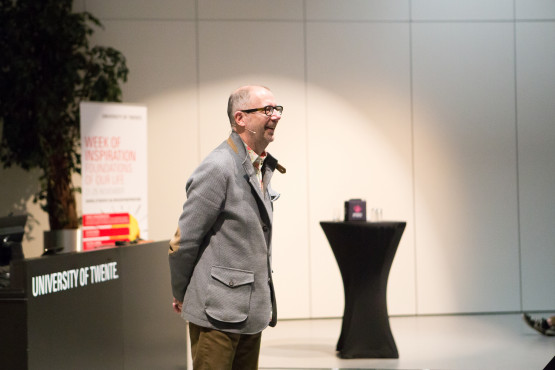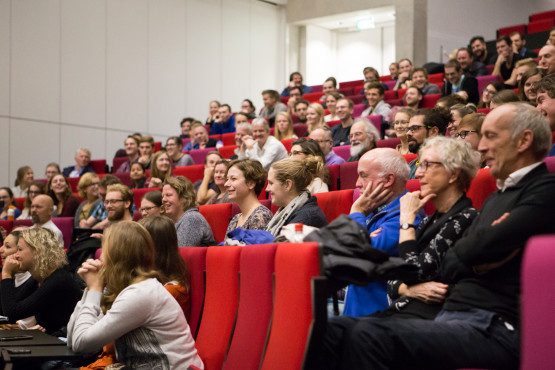Victor Lamme is a Professor of Cognitive Neuroscience at the University of Amsterdam and one of the prominent speakers at the UT’s Week of Inspiration. Today, he took the stage in the Waaier to present his talk on how we can read people’s minds and reveal their hidden thoughts, desires and intentions.
Reading dreams and memories
‘With brain scanners and measuring brain activity, we can reconstruct what a person is seeing and even read their dreams. We can measure private thoughts that happen only in your mind,’ began Lamme. ‘This way we can peek into someone else’s mind. That is of course fun, but there are also many useful applications of brainreading.’
One example is reading people’s memories, which is already being used to prove the guilt or innocence of crime suspects. ‘We can, for instance, determine if the person has seen the murder weapon before. This technique has high accuracy, higher than testimony, and can be used to test memories that people don’t want to report or consciously don’t have anymore,’ clarified Lamme.
Controlling a robot arm and measuring unconscious bias
Brainreading also has a clinical application and can serve for communicating with patients in vegetative state or with people who are paralyzed. ‘It can indicate if the mind still works,’ explained Lamme. ‘By applying electrodes to the brain of paralyzed patients, we can even train a computer to decode what the person wants to do.’ Thanks to that, such patients are able to control a robot arm, for example.
It is probably no big surprise that brain scanners can accurately detect our preferences, including sexual preference. According to Prof. Lamme, this could be used for measuring problematic sexual preferences like pedophilia and screening people, who work with children. ‘We can reveal preferences people are not aware of and measure unconscious bias, such as the one most people have towards African people. It has been proven that amygdala, which is a part of the brain that signals negative emotions, displays more activity when most people are shown faces of African people,’ continued Lamme. ‘This is true even for people, who are not consciously racist.’
Predicting the success of products
Research has also shown that there is very little correlation between people’s conscious intentions and their actual actions. Brain scanners, on the other hand, are very good in predicting what people will do. ‘Motivations don’t lead our choices, they follow the brain. We have no choice in what we do,’ said Prof. Lamme.
‘It’s not about what people say and think, it’s about what the brain wants, and so we can predict the success of products, songs, ads or campaigns based on how brain reacts to them, which is the basis of neuromarketing and shows that brain is really the one in control.’











